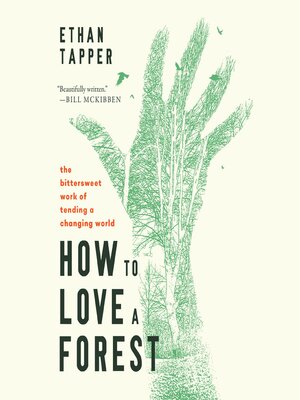How to Love a Forest
audiobook (Unabridged) ∣ The Bittersweet Work of Tending a Changing World
By Ethan Tapper

Sign up to save your library
With an OverDrive account, you can save your favorite libraries for at-a-glance information about availability. Find out more about OverDrive accounts.
Find this title in Libby, the library reading app by OverDrive.



Search for a digital library with this title
Title found at these libraries:
| Library Name | Distance |
|---|---|
| Loading... |
A tender, fearless debut by a forester writing in the tradition of Suzanne Simard, Robin Wall Kimmerer, and Robert Macfarlane
Only those who love trees should cut them, writes forester Ethan Tapper. In How to Love a Forest, he asks what it means to live in a time in which ecosystems are in retreat and extinctions rattle the bones of the earth. How do we respond to the harmful legacies of the past? How do we use our species' incredible power to heal rather than to harm?
Tapper walks us through the fragile and resilient community that is a forest. He introduces us to wolf trees and spring ephemerals, and to the mysterious creatures of the rhizosphere and the necrosphere. He helps us reimagine what forests are and what it means to care for them. This world, Tapper writes, is degraded by people who do too much and by those who do nothing. As the ecosystems that sustain all life struggle, we straddle two worlds: a status quo that treats them as commodities and opposing claims that the only true expression of love for the natural world is to leave it alone.
Proffering a more complex vision, Tapper argues that the actions we must take to protect ecosystems are often counterintuitive, uncomfortable, even heartbreaking. With striking prose, he shows how bittersweet acts—like loving deer and hunting them, loving trees and felling them—can be expressions of compassion. Tapper weaves a new land ethic for the modern world, reminding us that what is simple is rarely true, and what is necessary is rarely easy.
Forests are communities, defined by connection and sustained by death as much as by life. What if we could understand them while letting them remain exquisite mysteries?







